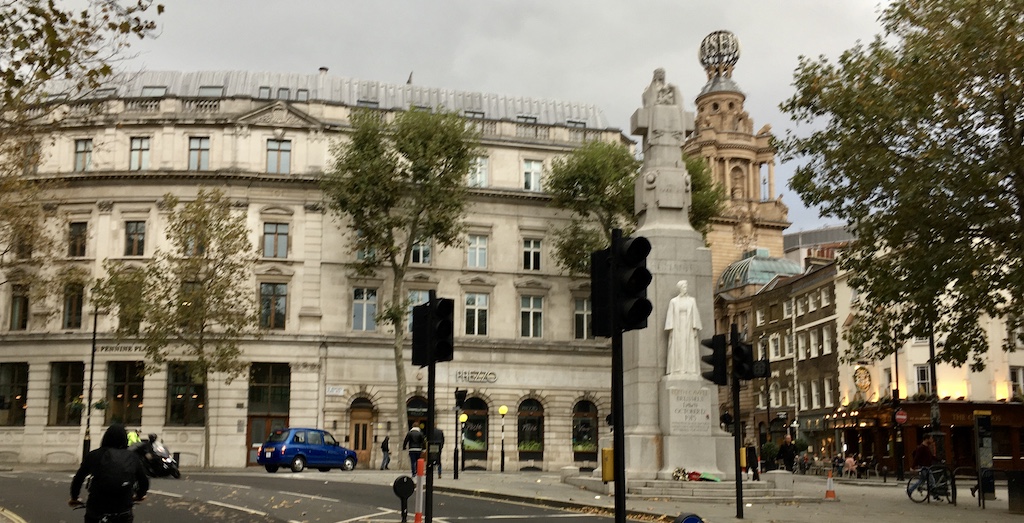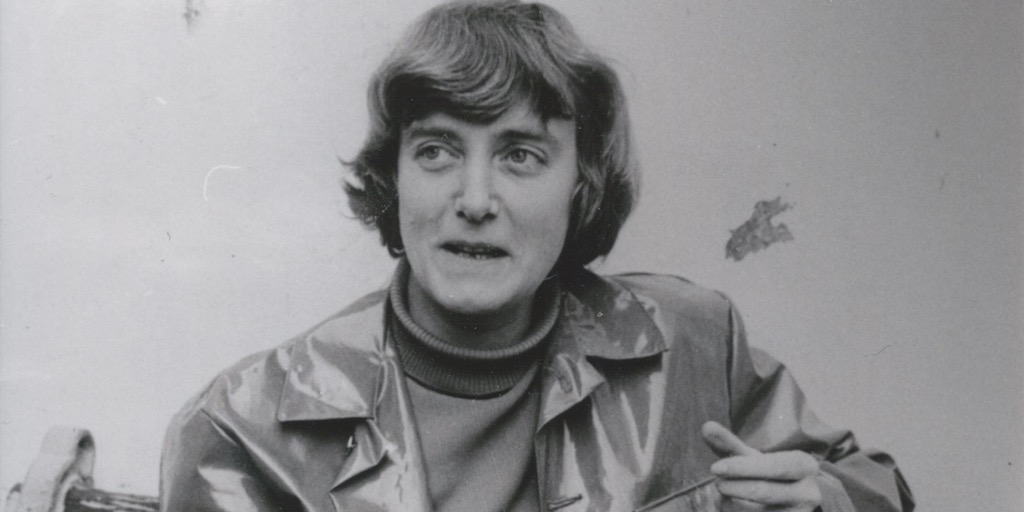Maureen Duffy at 80: In Times Like These
Scrivener, prophet, and friend
Header image: That's How it Was, by Maureen Duffy published in Lucifer June 1955, held at the King's College London Archives, K/SER1/63.
Words that count: Maureen Duffy
by Marina Warner
Maureen (Duffy), Rose (Tremain) and I were put together by the Arts Council of the northwest to do a reading tour of the region. It was l982, and Thatcher’s policies were biting. I had met Maureen before, through a friend of hers who was also a friend of my mother’s: Jeremy Trafford, an exuberant boho schoolteacher, an actor manqué, and a novelist - his death from Covid l9 was announced this year.[1] He was 85, and had given a great number of parties – lots of his friends were gay, though the word hadn’t yet settled down as common currency. These gatherings were always crammed, loquacious and fun.
Maureen showed her characteristic curiosity about me and responsiveness towards what I was trying to say or do: she is a talker and also a listener. She stands up very straight, and her eyes, set wide apart, never jig about but keep a steady, shrewd look on you, so that you realise that you mustn’t talk rubbish. You can be as witty or fanciful as you like, but the words must count. I was struck from the first by her frankness and the intensity of her focus, which is central to her originality. In her work, too, she takes surprising steps and adopts unexpected positions. Her fiction has always been experimental, playing with multiple voices, juxtapositions of time, parodic narrative styles; in the Anglophone world, such innovations tend not to lead to wide readership.
Our tour was a horror, but it made us laugh at the time, ruefully, shaking our heads. The towns we were sent to read in were quite astonishingly blighted by these early years of Thatcherism. Bury, Bootle, Barnsley were among the places we visited; it was February, or March; Manchester was a hole in the ground, as the Victorian sewers were collapsing. A sense of ruined and empty buildings, shut factories, boarded up shops, and drifting jobless, enveloped us, as if the early Eighties brought with them a specific fall of the barometer, a wretched weather in the streets. During the current difficulties of the lockdown for people living in that part of England especially, these remembered scenes now seem packed with bleak premonition. One dank, ramshackle venue after another, with only a scattering of seats taken. Everywhere it felt as if they were economising on light bulbs, as if the heating could not be kept on. At the Q&A, someone in the audience, wrapped in an old coat against the bone-piercing cold, would put up a hand and ask if we could read the novel he or she was writing? Or could we put them in touch with our agent? Or, on one never to be forgotten occasion, the questioner angrily demanded to know why we had been published at all? Was it because we came from London and knew people?
Maureen was cheerful, stalwart and outspoken throughout these dismal exchanges. She is a poet as well as a novelist and literary historian, but unlike most of us writers, she has a real grasp of what needs to happen to ensure practical survival for us all; she isn’t a lone gunslinger but a partisan. She talked eloquently about such matters and indeed was the first writer to fill me in on issues of intellectual property and lending rights, which have now become such a crucial issue in the digital era. She showed real foresight, but she is also no Jeremiah: she takes action and when she founded the ALCS, she entrenched the valuable principle of paying for photocopying, for example.
Of the three of us, Maureen was the most established author. Rose and I were ‘emerging’, though then that word wasn’t current either. Each night Rose performed, with brilliant timing and mimicry, passages from her most recent novel, Letter to Sister Benedicta (l978). I had just published my second novel, The Skating Party – the setting on the frozen Cam did at least match the temperature of our tour. Maureen had just brought out Gor Saga, and she read from it passionately, for the voice of the narrator – the hybrid ape-man – embodies a cause she has always fought for: animal rights.
Maureen hasn’t eaten meat or fish for years, and her elegant black patent brogues were not, emphatically not, made of leather, she told me. At each reading, she stood up straight and spoke the words of her hero, a being who has been fabricated by scientific experiment, a noble animal-monster. She is highly principled and a battler for what she believes in, and she puts her imagination, which is wild and mischievous, to work for her beliefs. Three years later, she published The Animal Rights Handbook. One of her other books, which I greatly admire (and include on my reading lists when I teach) is The Erotic World of Faery, her study of Celtic folklore and its many metamorphoses in English literature, literature being the most densely and beguilingly populated fairyland of all.
In Manchester - if I remember rightly- we were put up in a beautiful old tea warehouse or some such, and we stayed up late. Maureen was always frank and generous with what she revealed about herself, her loves, her friendships, her hopes, her ambitions, her many interests, and she responded in kind to what Rose or I might reveal. We built up an alliance and, in my case, deep admiration for Maureen, for her integrity and fantasy combined. Earlier in her career Rose was an actress and Maureen has always written plays. We came to feel like a working troupe during some forgotten war, playing to near-empty houses, but warming ourselves up as we strove to warm them.
Editor's note: Marina kindly updated her paper given in 2013 with current details.
[1] Maria Perry, obituary for Jeremy Trafford, The Guardian, 5 May 2020.
Sections and Chapters
Duffy and King's introduction
Katie Webb
Finding Maureen Duffy in the Archives
Patricia Methven
King's in Maureen Duffy's time
Christine Kenyon Jones
Kings, and Queens, Histories in Fact and Fiction
Clare A. Lees
Panel Summary: the city as a space for new possibilities
Phoebe Blatton
Writing, Rites, and Rights
John Stokes
A Window for Maureen Duffy
Clare Brant
Fighting and Writing introduction
Katie Webb
Duffy and the European Writers' Congress
Lore Schultz-Wild
An 80th Birthday Honorific Speech
Ingrid Protze
Memories of the German Writers' Union
Sabine Herholz
On Maureen
Katalin Budai
A copyright warrior and a true defender of rights
Olav Stokkmo
Recognising writers: responses, records, royalties
Katie Webb
Maureen Duffy's contribution to gay rights and lesbian visibility
Jill Gardiner
For Maureen Duffy, Poiêtes
Karen Gevirtz
Editor's introduction
Katie Webb
Maureen Duffy: Scrivener and Prophet
Charles Lock
Words that count: Maureen Duffy
Marina Warner
Browse articles, 'Scrivener, Prophet, Friend'


